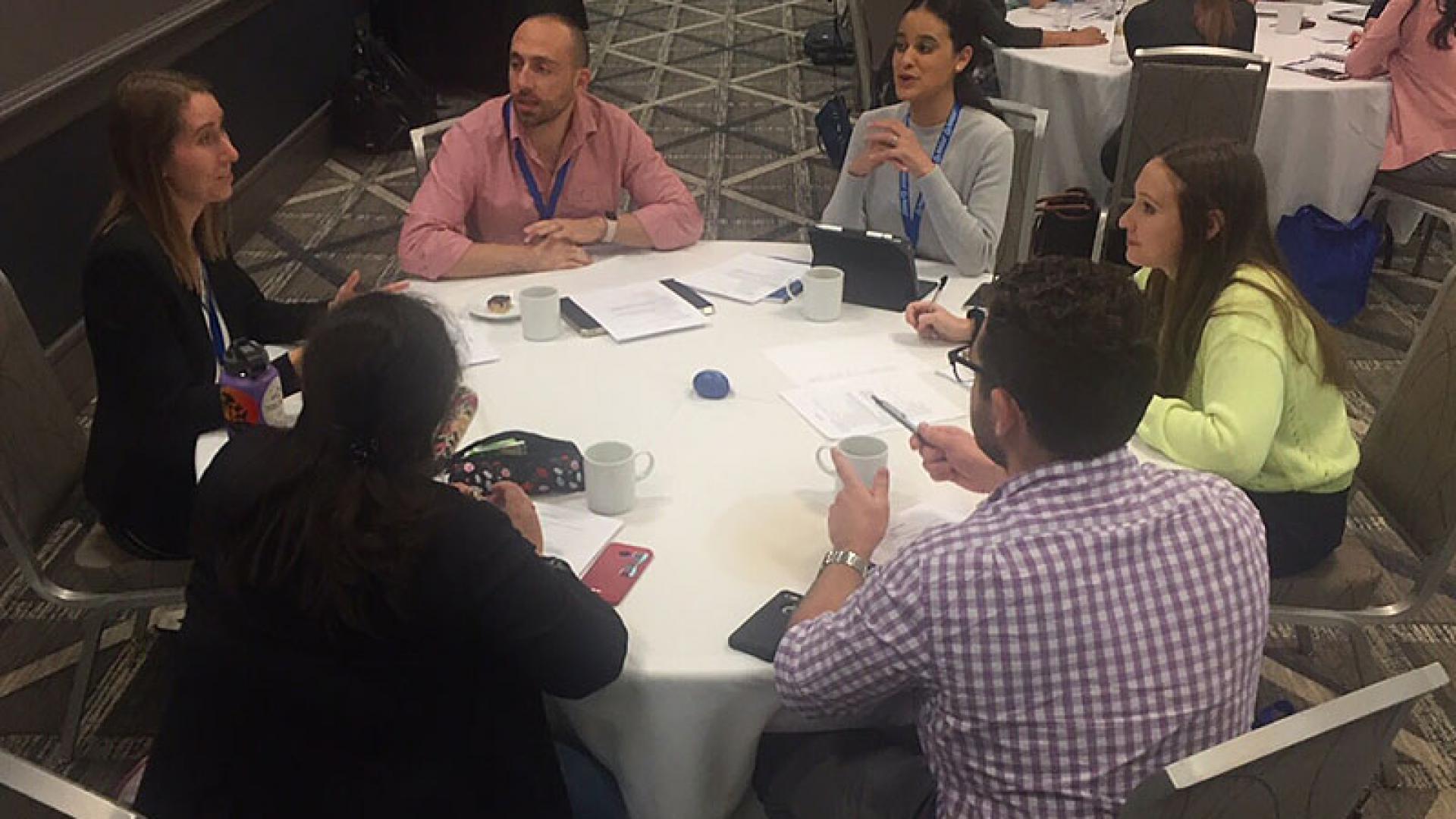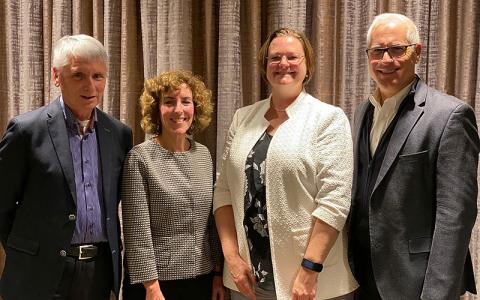Accelerating the Path to a Cure: BrightFocus Alzheimer’s Fast Track
Written By: BrightFocus Editorial Staff



Written By: BrightFocus Editorial Staff

BrightFocus is once again in the middle of leading Alzheimer’s Fast Track, a several day incubator for some of the world’s most promising early career researchers. By encouraging and supporting these women and men, BrightFocus hopes to accelerate the path to a cure for the disease. Alzheimer’s Fast Track, once biennial, is now held annually, a reflection of both demand for the program and the sense of urgency to get to a cure for Alzheimer’s disease (AD).
“Thanks to the generosity of BrightFocus donors, we provide a master-class for early-career scientists wishing to pursue a career in Alzheimer’s and related dementias,” said Diane Bovenkamp, PhD, BrightFocus Vice President of Scientific Affairs and an Alzheimer’s Fast Track co-chair. “This can bring exponential rewards in terms of incubating new ideas, encouraging collaboration, and equipping the field’s rising talent with the skills they need to succeed faster.”
Alzheimer’s Fast Track is aimed at graduate students, post-doctoral researchers, and other early-career scientists focused on Alzheimer’s disease and related dementias. A group, whose size averages around 60, spends three days hearing from expert researchers and clinicians who provide a broad, interdisciplinary overview of the current state of Alzheimer’s research – advances in our current understanding of the disease; where knowledge gaps still exist; potential new treatments; and what’s required to get to the next stage.
The ratio of participants to senior scientists is about 4:1, and most faculty members stay around for the entire three days, interacting with students at breaks and mealtimes. Workshop faculty often speak enthusiastically about the experience, and say they, too, benefit from the “cross pollination” of different disciplines and areas of expertise. “I knew it would be a worthwhile experience. What I wasn’t expecting was to learn so much!,” commented Subhojit Roy, MD, PhD, professor of pathology and neuroscience at the University of Wisconsin (Madison), following last year’s workshop, and who is a repeat expert speaker this year.
Interspersed with lectures is hands-on training in grant writing, presentation skills, and career development – everything from “elevator speeches,” to avoiding early research pitfalls. To further refine their critical thinking and grant writing skills, attendees are assigned to teams and asked to formulate a joint research question and write a mock grant proposal, all of which are reviewed and competitively judged at Alzheimer’s Fast Track’s end.
After engaging at this level over three days, attendees are better equipped to succeed in the Alzheimer’s field. Alzheimer’s Fast Track equips them with new knowledge, needed skills, and a network of friends, mentors, and potential collaborators.
In the Alzheimer’s field, “we need to encourage innovative thinking, new challenges, and the best ideas,” says Harry Steinbusch, PhD of Maastricht University, who co-chairs this year’s Alzheimer’s Fast Track along Dr. Bovenkamp, Frank LaFerla, PhD of the University of California, Irvine, and Cynthia Lemere, PhD, of Harvard Medical School.

Alzheimer’s Fast Track is particularly well-suited to a field that continues to grow in its diversified approaches to the disease. The broad array of faculty and students at Fast Track reflects the belief that there are multiple ways to slow the disease in its different stages and forms.
“Given what we’re learning about the complexity of Alzheimer’s disease, and the many different forms it can take, it’s more important than ever to put a diverse group of motivated researchers on the road to discovering cures,” Dr. Bovenkamp said, who noted that Fast Track brings together scientists from a cross-section of disciplines and encourages building broad, collaborative projects that draw on multiple sources of expertise from around the world.
“Alzheimer’s Fast Track is helping to set the stage for the research of the future, accelerating the work of a highly promising group of scientists who are ready to tackle one of science’s most complex diseases,” Dr. Bovenkamp said.
[View a list of speakers at the 2019 Alzheimer’s Fast Track Workshop.]
Watch this video from BrightFocus Alzheimer’s Fast Track® 2016
BrightFocus Foundation is a premier global nonprofit funder of research to defeat Alzheimer’s, macular degeneration, and glaucoma. Through its flagship research programs — Alzheimer’s Disease Research, Macular Degeneration Research, and National Glaucoma Research— the Foundation has awarded nearly $300 million in groundbreaking research funding over the past 51 years and shares the latest research findings, expert information, and resources to empower the millions impacted by these devastating diseases. Learn more at brightfocus.org.
Disclaimer: The information provided here is a public service of BrightFocus Foundation and is not intended to constitute medical advice. Please consult your physician for personalized medical, dietary, and/or exercise advice. Any medications or supplements should only be taken under medical supervision. BrightFocus Foundation does not endorse any medical products or therapies.
